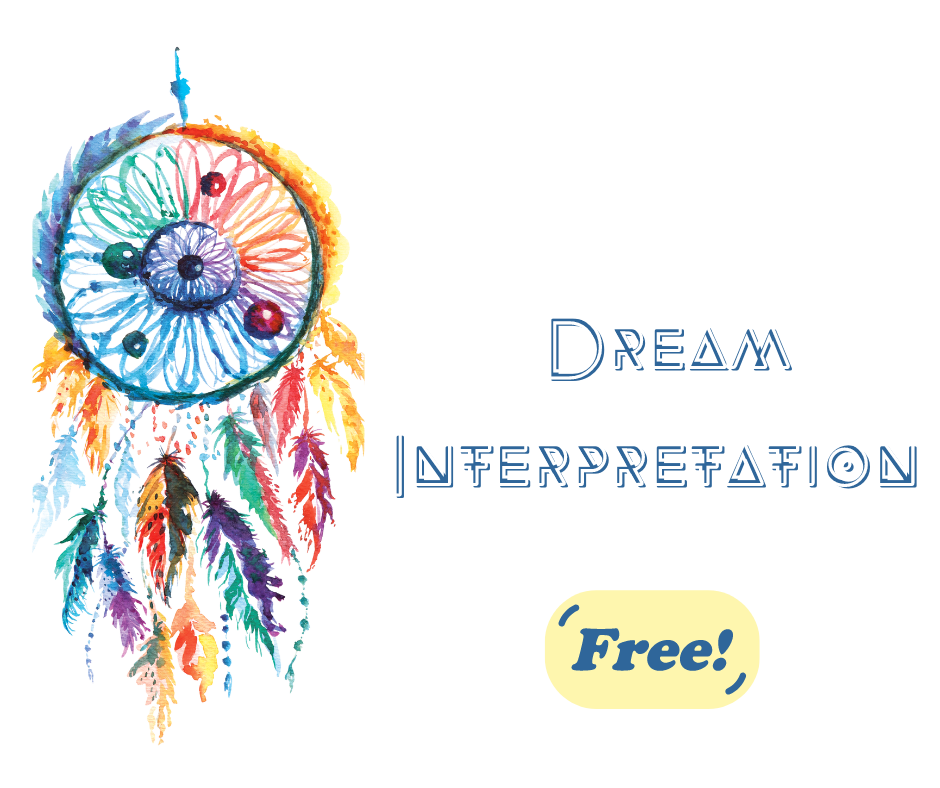Have you ever dreamt about something – even something seemingly insignificant, like a still picture on a wall – only to encounter that exact same dream-frame later in reality? Did the realization make your spine tingle? Did it sort of feel like you’ve just spotted a glitch in the matrix of reality? If any of that sounds familiar to you, you’ve probably experienced déjà rêvé (quite literally French for “already dreamt”).
This phenomenon is indeed a truly fascinating one. Is it more though than a mere freak occurrence?
Deja Reva Meaning
The very concept of déjà rêvé is seldom considered without at least mentioning déjà vu. French for “already seen,” déjà vu describes a real life situation which the person having the experience has already seen/experienced before. Déjà rêvé is quite similar, with the difference that the situation the person having the experience identifies as familiar, was dreamt, rather than seen before.
With that in mind, it is clear that déjà rêvé is a precognitive dream. Through such a precognitive dream, the dreamer becomes the observer of events, which take place at a later date in the real world.
There are countless examples of déjà rêvé, not just on a personal level for everyone, but on a historic level too. There are recorded cases of people having dreamt about events such as the planes smashing into the WTC towers, various hurricanes and natural events such as the Japan earthquake of 2011 etc, well before the actual real-world events took place.
The very nature of these precognitive dreams makes them quite paradoxical, and because of the that, very interesting indeed. The mere existence of déjà rêvé tests the limits of science, calling upon theories so revolutionary that they may change our entire understanding of time and space.
One concept which is absolutely necessary for the explanation of déjà rêvé, is retrocausality. Also called reverse-causality and backwards causality, retrocausality essentially means that events from the future have an effect upon the past. What all this also means though that the future already exists, and we, humans, are not more than the more or less passive observers of its unfolding.
While this does sound ridiculous at first (and even second) glance, there actually is an example of it in quantum physics, where the existence of retrocausality has been proven. Furthermore, theories have already been proposed for a new model of time, which is based upon the premise that the past, present and future are interconnected and they are relative. Retrocausality can indeed exist within such a model.
While the phenomenon of retrocausality can indeed be fitted into the quantum universe, the laws of physics which govern the latter do not scale up to the macro universe. Therefore, theories have been created that see a link between quantum states and precognitive dreaming. This is the realm of truly advanced science and while all this only exists on a theoretical level for the time being, these theories certainly cannot be summarily dismissed. Going into technical details on them exceeds the scope of this article though.
Long story short: there may indeed be a link between dreaming and the quantum realm, and dreaming may in fact offer us a glimpse into how the “matrix” of reality and time works.
Retrocausality, as presented above, may offer a handy sort of grasp on phenomena as complex as déjà rêvé, but it itself presents a paradox and a couple of extremely interesting questions.
Given how in quantum physics, there’s a particle/wave duality present, there could well be a dream/reality duality involved in déjà rêvé as well. What that means is that it is impossible to tell whether the dreamer experiences an event which is “already” present in the future, or whether his actual dream is the “cause” of that future event.
The above makes it clear that every attempt to fathom déjà rêvé will quickly degenerate into a brain-twisting exercise full of paradoxes and thoughts impossible to digest in the context of science.
Déjà rêvé and lucid dreaming
If we assume that dreamers do indeed cause real life events to occur, lucid dreaming gains an almost incomprehensible importance. Through it, the dreamer is theoretically able to exert control over cataclysms and to avert them in real life.
Through a lucid precognitive dream, a person could focus on the precognitive part, and thus experiments could be done on much smaller scale than those implied by major natural disasters. For instance, the lucid dreamer could alter the precognitive part of his/her dream, and then see whether the dream materializes in real life, in its altered form.
While all this may seem farfetched, and really the stuff of science fiction, all its components belong to the realm of science fact rather. There is actually evidence out there regarding lucid déjà rêvé, and there have been experiments undertaken in this regard as well.
There are people out there who swear that some of their dreams do indeed come true, and there is photographic evidence concerning the physical changes lucid déjà rêvérs have inflicted upon themselves and others- apparently by willingly altering their dreams – which later turned out to be precognitive.
There are several different types of déjà rêvé-dreams
As said above, déjà rêvé can take a number of different forms, and degrees of depth.
Low order precognitive dreams start with déjà vu. Surprisingly frequent, déjà vu is a sort of precognitive experience where amnesia plays a role. As such, the possibility that it is indeed linked to a precognitive dream cannot be excluded. Most of the time, those going through a déjà vu experience cannot recall the memory imprint where the experience originates.
Proper déjà rêvé is one level deeper than déjà vu, since the person having the experience can actually trace back the memory imprint to a dream he/she had.
Symbolic precognitive dreams are next in line. In such dreams, the precognitive part is abstracted through symbolism. Such a dream can be rather difficult to identify as a precognitive one, and it usually isn’t identified as such until the said precognitive part is actualized.
Third person precognitive dreams are some of the highest-profile examples of déjà rêvé, given how they give the dreamer a movie-like view of certain events, which are relatively easy to remember further down the line. Such dreams can be symbolic or literal in nature. The dreamer is not a part of the dream, or of the dream setting: he/she merely acts as an observer.
Déjà rêvé becomes much more interesting in the realm of higher order precognitive dreams. Such dreams result in memory imprints that match a future real-life situation down to the minutest detail and as such, they will almost certainly be found “creepier” by those experiencing them. This extra level of clarity will almost certainly eliminate the possibility of the dreamer jotting down the déjà rêvé experience to a mere coincidence.
Such higher-order precognitive dreams are usually first-person ones, and the similarities they carry to the future real life event extend way beyond the visuals. We are talking about actual thoughts and feelings here, which all match up perfectly. With that in mind, it is hardly surprising that such déjà rêvé experiences should send tingles up your spine.
Literal precognitive dreams have been recorded throughout history, one of the most prominent such records being about Samuel Clemens’ (Mark Twain’s) dream of his brother’s death.
Lucid precognitive dreams are beyond a doubt the most interesting dreams in this category, given the control the dreamer may have over the events unfolding in the dream.
Although it is indeed this element of potential control that makes the premise of lucid precognitive dreams so appealing and interesting, it is not always present in a lucid precognitive dream.
There are in fact two types of lucid precognitive dreams, defined by the presence or absence of the control element.
The type of lucid precognitive dream where this element is missing is called an ambient lucid precognitive dream. In such a dream, while the dreamer realizes he/she is dreaming, he/she just goes with the flow, without shaping and influencing the events unfolding within the dream. The catch is that there is no way of telling at the time of the dream that it is indeed a precognitive one. That is only revealed later, when the dream actualizes.
Whenever such a dream actualizes though, the sensation of déjà vu becomes overwhelming.
Active lucid precognitive dreams are where things truly take a turn towards the interesting. Taking the above detailed theories into account, the possible implications of such a dream are nothing short of monumental/global in scope. In an active lucid precognitive dream, the dreamer exerts control over the dream, effectively shaping and molding it to his/her liking. Such an ability – at least on a theoretical level – may give one the power to shape and mold future real world events through these dreams.
Let us not get carried away on this theory though. While there is some evidence supporting this theory, it is quite subjective and circumstantial at best.
What kind of evidence is there regarding the shaping of real-world events through active lucid precognitive dreaming?
Apparently, a person caused a triangle to appear on the forehead of a co-worker, in an active lucid precognitive dream. Days later, the triangle did indeed materialize, and the person did in fact take Polaroid pictures of it as proof. The coworker was allegedly not in on the experiment.
Obviously, until such proof is produced under controlled and verifiable circumstances, it can hardly be considered conclusive.
The very thought of someone being able to do to you as he/she wishes through a dream, is indeed extremely scary and sick enough to make you want to not even consider it.
Déjà rêvé frequency
As I already mentioned above, déjà rêvé is a surprisingly frequent phenomenon. According to scientifically conducted research, more than 95% of people have experienced it at some point in their lives. As such, the odds are good that you are indeed one of those who have experienced déjà rêvé.
Conclusion: Deja Reva Meaning
The phenomenon of déjà rêvé is certainly an interesting one from every angle and as such, it certainly warrants research. The problem with this is however that it is extremely difficult to draw objective conclusions from research, as one has little choice but to take people’s words for the dreams they report.
Due to the fact that even inside a lucid dream, it is nearly impossible to tell whether one is dealing with a precognitive episode, keeping research volunteers under controlled circumstances for an actual experiment is extremely difficult too.
Long story short: the proof that’s presented out there cannot really be accepted in the form described above. It can be faked and it probably is – at least in some instances. Still, the whole concept of déjà rêvé linked up with lucid dreaming makes for a potentially superb personal journey.


